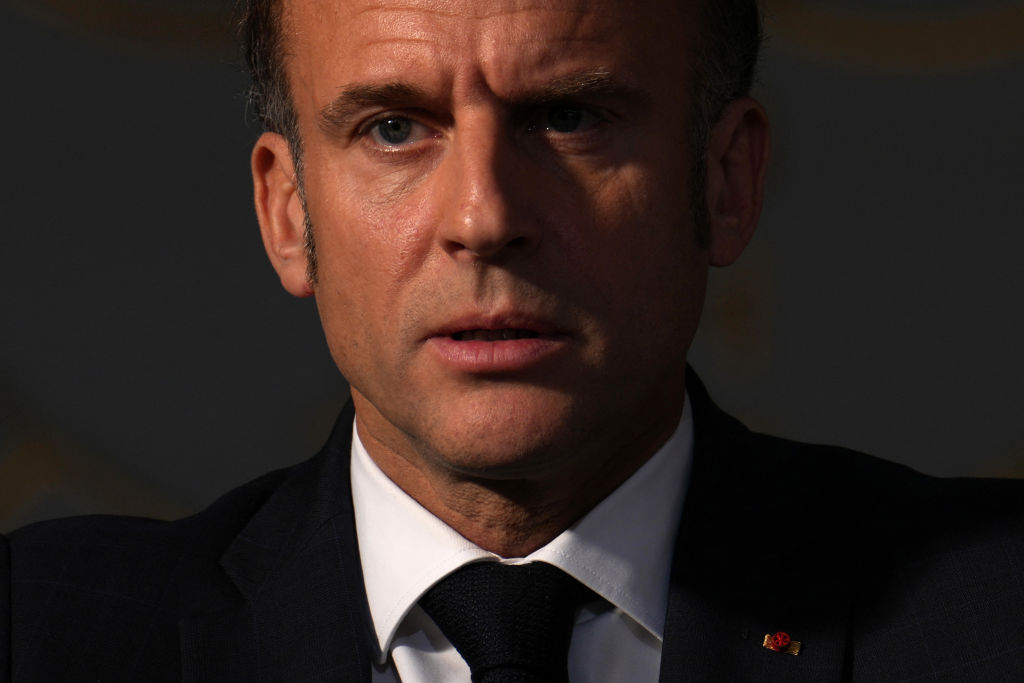Europe’s leaders rounded on Elon Musk on Monday as the American tech billionaire continued to air his views on the state of the Old Continent. Although Musk – who in a fortnight’s time will be president Donald’s Trump efficiency tsar – has focused most of his ire on Britain, he’s also endorsed Alternative for Germany (AfD) in a newspaper column ahead of next month’s parliamentary election.
Norway’s prime minister, Jonas Gahr Store, said in an interview that he finds it ‘worrying that a man with enormous access to social media and large financial resources is so directly involved in the internal affairs of other countries’. According to Store: ‘This is not how it should be between democracies and allies.’
Emmanuel Macron didn’t mention Musk by name in an address to French ambassadors at the Elysée Palace, but that’s who he had in mind as warned his audience to be on their guard: ‘Ten years ago, who could have imagined it if we had been told that the owner of one of the largest social networks in the world would support a new international reactionary movement and intervene directly in elections, including in Germany.’
Even after he left the Oval Office, Obama continued to stick his nose into European politics
Musk responded in kind, refraining from namechecking Macron but responding to his declaration on X with the remark: ‘Oh, like that time Starmer called [Donald Trump] a racist and said the British government should do everything to stop him?’
There are plenty of other examples of outsiders meddling in European affairs. When Barack Obama was American president he notoriously warned Britons in 2016 that a vote to leave the EU would leave at the country ‘at the back of the queue’ for trade talks.
There was a similar threat from president Francois Hollande – to whose government Macron belonged – who said three months before the Brexit referendum: ‘I don’t want to scare you, I just want to say the truth – there will be consequences.’
Another prominent opponent of Brexit was the Hungarian-American billionaire George Soros, who donated £400,000 to the Remain campaign with a sense of ‘pride’. The same year he invested $500m to support refugees and migrants arriving in Europe. Soros’s son, Alexander, now runs his father’s business empire, and in November he met Macron at the Élysée in what the former described as a discussion to ‘find innovative ways to work together in an increasingly fragmented world’.
Obama also endorsed Angela Merkel in the final weeks of his presidency as she pondered whether to stand for re-election in 2017. ‘It’s up to her whether she wants to stand again,’ Obama said in November 2016. ‘But if I were here and I were German and I had a vote, I might support her.’
Even after he left the Oval Office, Obama continued to stick his nose into European politics, as Macron knows all too well. ‘Obama backs Macron in last-minute intervention in French election,’ ran the headline in the Guardian, days before the French went to the polls in May 2017 to decide whether Macron or Marine Le Pen would be president. ‘The French election is very important to the future of France and the values that we care so much about,’ said Obama, by way of justifying his endorsement of Macron, whom he said appealed to ‘people’s hopes and not their fears’.
In his final press conference as president in January 2017, Obama had told reporters that he would return to the public arena when ‘I think our core values may be at stake’.
By ‘core’ values, he meant ‘progressive’ values, those shared by Merkel, Macron, Jacinda Ardern, Justin Trudeau, Nicola Sturgeon, Leo Varadkar, Matteo Renzi and Mark Rutte. The 2010s was the high-water mark of elite centrism, the rule of the ‘Anywheres’ over the ‘Somewheres’, the triumph of the progressives over the nationalists.
It began to recede with Brexit and the victory of Trump in 2016 and its levels are now dangerously low with the rise of Giorgia Meloni in Italy, Geert Wilders in Holland, Marine Le Pen in France and the AfD in Germany.
It was rather symbolic that the moment Macron attacked Musk, Trudeau announced his resignation as prime minister of Canada. His departure means Macron is the only progressive left standing from the Class of 2016/17.
But he is a president without power, a man who has seen four prime ,inisters come and go in the last 12 months as France came apart at the seams.
In attacking Musk as the leader of a ‘new international reactionary movement’, Macron is trying desperately to rally the forces of progressivism. It shows his disconnection from reality. It is no longer 2017. His elite centrism or, as Macron defines it, his ‘extreme centrism’, is finished.
Voters in Europe and North America are no longer prepared to tolerate diminishing living standards, mass immigration, rampant lawlessness and crumbling infrastructure, all in the name of ‘progress’.
As Time magazine wrote in naming Donald Trump its Person of the Year for 2024, ‘all of us – from his most fanatical supporters to his most fervent critics – are living in the Age of Trump’.
That includes you, Monsieur le President.








Comments